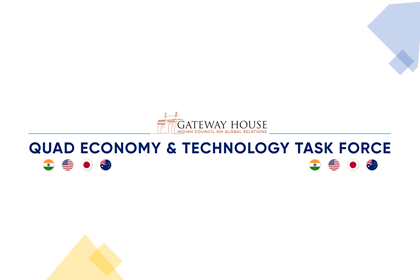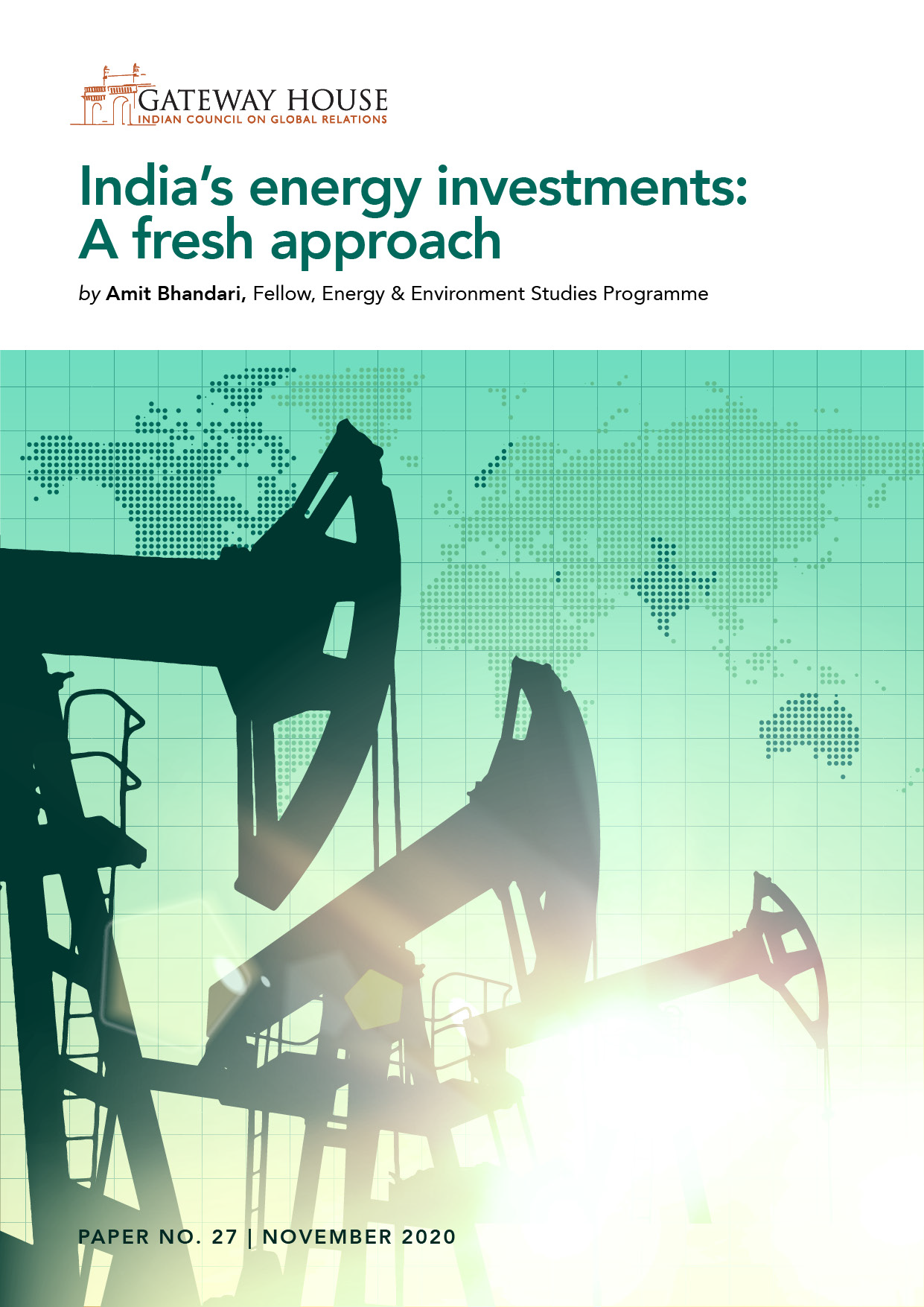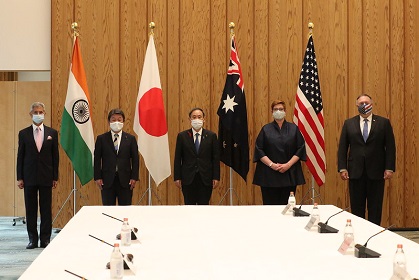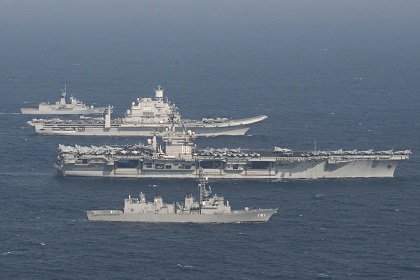Gateway House launches first Quad Economy and Technology Task Force
The Task Force led by Gateway House will study economic and technological cooperation between the four like-minded democracies in the Indo-Pacific.
 Courtesy: Gateway House
Courtesy: Gateway House
The Task Force led by Gateway House will study economic and technological cooperation between the four like-minded democracies in the Indo-Pacific.
 Courtesy: Shutterstock
Courtesy: Shutterstock
Individuals now generate copious amounts of personal data everyday – both online and offline. Devices and infrastructure extract data, which can be shared instantly across borders with diverse entities - without consent. It is imperative that countries come together to create regulations to protect individuals who are unable to control how their data is shared and processed. A model already exists in the Paris Climate Agreement.
 Courtesy: Shutterstock
Courtesy: Shutterstock
In its recent itineration, the Quad (or the Quadrilateral Security Dialogue) has been toiling since 2017, through deliberations among mid-level and senior officials, to develop a common vision for the challenges facing the Indo-Pacific region, challenges caused by China's menacing rise and aggressive behaviour.
 Courtesy: Shutterstock
Courtesy: Shutterstock
There has been an increasing need for the regulation of content on social media platforms like Twitter, WhatsApp and Facebook. Ambika Khanna, Senior Researcher for International Law Studies Programme explains the legal concerns associated with intermediaries
On December 15, 2020, Gateway House co-hosted a webinar with Konrad-Adenauer-Stiftung on Europe in the Indo-Pacific. The panel included: Rt Hon Sir Michael Fallon KCB, Member, Indo-Pacific Commission, Policy Exchange, UK, Former Secretary of State of Defence, UK; Karin Mössenlechner Director, Asia and Oceania Department, Ministry of Foreign Affairs, Netherlands; Dr. Axel Berkofsky, Co-Head of the Asia Center at Istituto per gli studi di politica internazionale (ISPI), Italy and Peter Max Rimmele, Resident Representative to India, Konrad-Adenauer-Stiftung.
 Courtesy: Gateway House
Courtesy: Gateway House
India’s investments in energy thus far have concentrated on buying stakes in oilfields in developing countries often at the risk of political unpredictability. With oil prices, and therefore oil company values, falling – India should revise this strategy and aim for better value and lower risk by making investments in companies in the developed world. This paper recommends investing in oil and gas assets in energy-rich developed countries like the U.S., Canada and Australia, to reduce India's vulnerability to future increases in energy prices. These should be made via a sovereign wealth fund (SWF), not the national oil companies. The SWF will be best served by acting as a financial investor, acquiring, only minority stakes, rather than aiming for management control.
 Courtesy: Shutterstock
Courtesy: Shutterstock
Should the Quad be formalized? It has evolved from a crisis response group in 2004 to a strategic partnership today between the four member-countries – India, the U.S., Australia and Japan. There are benefits and challenges to the institutionalisation of the Quad which require timely analysis, especially as the group has renewed vigour this year with the COVID-19 pandemic and China’s aggression in the Indo-Pacific region.
 Courtesy: US Navy/Twitter
Courtesy: US Navy/Twitter
Australia's much-awaited inclusion at the Malabar Exercise-2020 reflects a hard reset in India's foreign policy that was traditionally accommodative to Chinese concerns on the militarisation of the Quad. In the backdrop of the on-going stand-off with China at the Ladakh border, the Indian Navy has maintained a high operational tempo and deployed the highest numbers of frontline assets during this edition of the Malabar Exercise. India must build on this strategic vision and work towards including France at the next edition of Malabar in 2021.
 Courtesy: Shutterstock/Gateway House
Courtesy: Shutterstock/Gateway House
Now that the India-U.S. 2+2 meeting has ended, Indian officials are preparing for a hectic season of summiteering in November, from the SCO to the BRICS and the G20. All will give India global attention, and help the country prepare its positioning at home and abroad.
 Courtesy: Wikimedia Commons
Courtesy: Wikimedia Commons
The Space20 is the newest sub-forum of the G20 initiated by Saudi Arabia, with the support of the United Nations Office of Outer Space Affairs. India, on its way to the G20 presidency in 2022, should set a comprehensive Space20 agenda for the democratization of outer space, whereby it can share its space growth story with the developing world and achieve its goal to become a global knowledge epicenter.